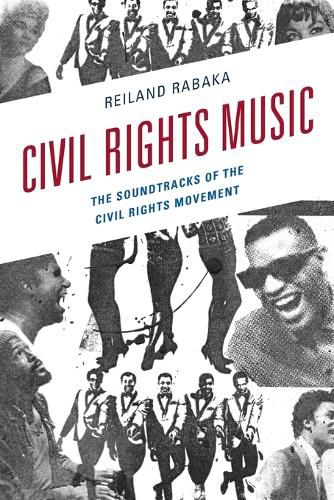Readings Newsletter
Become a Readings Member to make your shopping experience even easier.
Sign in or sign up for free!
You’re not far away from qualifying for FREE standard shipping within Australia
You’ve qualified for FREE standard shipping within Australia
The cart is loading…






While there have been a number of studies that have explored African American movement culture and African American movement politics, rarely has the mixture of black music and black politics or, rather, black music an as expression of black movement politics, been explored across several genres of African American movement music, and certainly not with a central focus on the major soundtracks of the Civil Rights Movement: gospel, freedom songs, rhythm & blues, and rock & roll. Here the mixture of music and politics emerging out of the Civil Rights Movement is critically examined as an incredibly important site and source of spiritual rejuvenation, social organization, political education, and cultural transformation, not simply for the non-violent civil rights soldiers of the 1950s and 1960s, but for organic intellectual-artist-activists deeply committed to continuing the core ideals and ethos of the Civil Rights Movement in the twenty-first century. Civil Rights Music: The Soundtracks of the Civil Rights Movement is primarily preoccupied with that liminal, in-between, and often inexplicable place where black popular music and black popular movements meet and merge. Black popular movements are more than merely social and political affairs. Beyond social organization and political activism, black popular movements provide much-needed spaces for cultural development and artistic experimentation, including the mixing of musical and other aesthetic traditions. Movement music experimentation has historically led to musical innovation, and musical innovation in turn has led to new music that has myriad meanings and messages-some social, some political, some cultural, some spiritual and, indeed, some sexual. Just as black popular movements have a multiplicity of meanings, this book argues that the music that emerges out of black popular movements has a multiplicity of meanings as well.
$9.00 standard shipping within Australia
FREE standard shipping within Australia for orders over $100.00
Express & International shipping calculated at checkout
While there have been a number of studies that have explored African American movement culture and African American movement politics, rarely has the mixture of black music and black politics or, rather, black music an as expression of black movement politics, been explored across several genres of African American movement music, and certainly not with a central focus on the major soundtracks of the Civil Rights Movement: gospel, freedom songs, rhythm & blues, and rock & roll. Here the mixture of music and politics emerging out of the Civil Rights Movement is critically examined as an incredibly important site and source of spiritual rejuvenation, social organization, political education, and cultural transformation, not simply for the non-violent civil rights soldiers of the 1950s and 1960s, but for organic intellectual-artist-activists deeply committed to continuing the core ideals and ethos of the Civil Rights Movement in the twenty-first century. Civil Rights Music: The Soundtracks of the Civil Rights Movement is primarily preoccupied with that liminal, in-between, and often inexplicable place where black popular music and black popular movements meet and merge. Black popular movements are more than merely social and political affairs. Beyond social organization and political activism, black popular movements provide much-needed spaces for cultural development and artistic experimentation, including the mixing of musical and other aesthetic traditions. Movement music experimentation has historically led to musical innovation, and musical innovation in turn has led to new music that has myriad meanings and messages-some social, some political, some cultural, some spiritual and, indeed, some sexual. Just as black popular movements have a multiplicity of meanings, this book argues that the music that emerges out of black popular movements has a multiplicity of meanings as well.